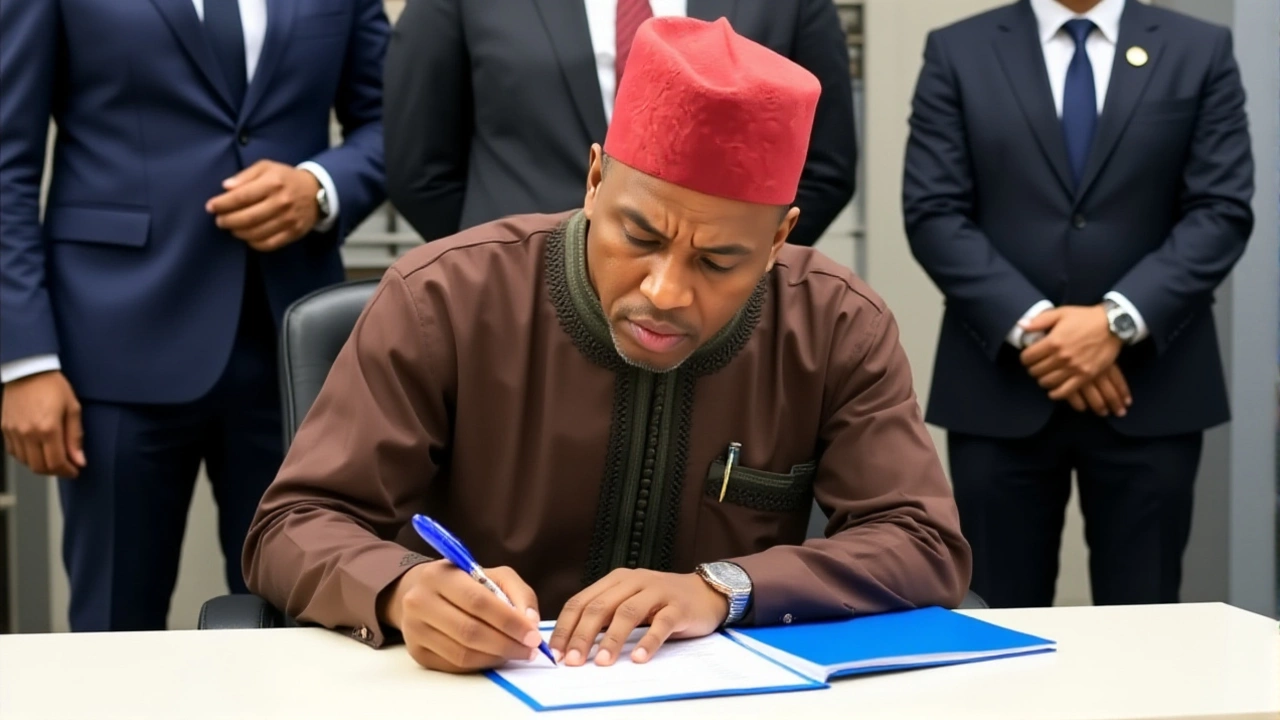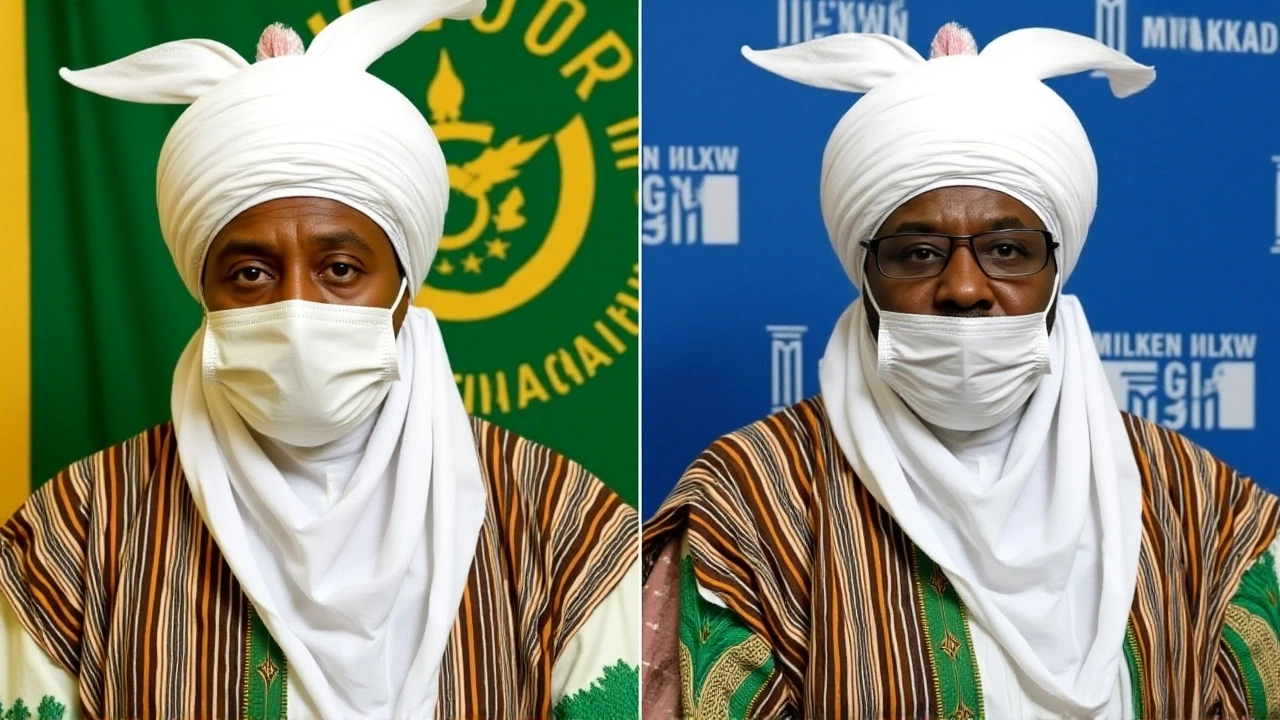The Kano State Police Command has issued an unprecedented ban on the centuries-old durbar festival during the 2025 Eid-el-Kabir celebrations, citing credible intelligence of planned disruptions. The directive, announced on Tuesday, March 25, 2025, at 11:00 AM WAT by Commissioner of Police Ibrahim Adamu Bakori at the Command Headquarters in Kano Municipal, Nigeria, prohibits all forms of horseback processions, car racing, reckless driving, and public display of weapons across the state’s 44 local government areas. The move comes amid deepening tensions between the reigning Emir Muhammadu Sanusi II and the deposed Alhaji Ado Bayero, whose rival factions have historically clashed during traditional festivities.
Why the Durbar Matters — And Why It’s Being Stopped
The durbar festival isn’t just a parade. For over 700 years, it’s been the living heartbeat of Kano’s cultural identity — a dazzling spectacle of mounted horsemen in embroidered robes, trumpets blaring, and crowds cheering along the ancient routes from Gidan Rumfa to the Durbar Grounds. It’s a display of loyalty, heritage, and communal pride. But this year, the security apparatus sees something else: a powder keg.
Security analysts point to the 2019 durbar as a warning sign. That year, supporters of the two emirs clashed near the Race Course, leaving three injured and seven arrested. This time, with the political stakes higher and the public mood more volatile, authorities aren’t taking chances. "It’s not about suppressing culture," said Professor Ibrahim Umar of Bayero University Kano. "It’s about preventing violence disguised as tradition. The last thing we need is blood on the streets during Eid."
The Ban: What’s Prohibited, What’s Allowed
The police order is precise. No Kilisa — the local term for ceremonial horseback riding. No motorcades or reckless driving. No firearms, knives, or suspicious objects in public view. Violators, the statement warns, will be "dealt with in accordance with the provisions of the law." That means arrests, possible prosecution under the Firearms Act, and even preventive detention.
But here’s the twist: Eid prayers are still on. The Race Course in Kano Municipal, the traditional gathering point for tens of thousands, will open as scheduled. The Kano State Police Command is deploying around 15,000 officers — including reinforcements from the Mobile Police (MOPOL) 18 Battalion — to man checkpoints across the state. The Department of State Services (DSS) and the Nigerian Army’s 8 Division from Maiduguri are also involved.
It’s a massive operation — and it’s not just about stopping violence. It’s about controlling narrative. The ban is a signal: the state won’t let tradition be weaponized.
Political Undercurrents and Cultural Backlash
Behind the security rationale lies a deeper conflict. The dethronement of Alhaji Ado Bayero in 2014 by the state government — a move widely seen as politically motivated — never fully healed. His supporters still view him as the legitimate emir. Sanusi II, a reformist and former Central Bank governor, is popular with the youth and urban middle class but distrusted by traditionalists.
"It’s to the ruin of that ancient rulership line," said Zariyi Yusuf, former National Coordinator of the Middle Belt Patriots, in a March 28 TV interview. "This isn’t just about security. It’s an opening — for politicians to meddle, to fracture what’s left of the emirate’s unity. They’re using fear to justify control."
The Kano State Government, headquartered on Bayero Street, has remained silent. That silence speaks volumes. No public endorsement. No condemnation. Just coordination behind the scenes. Many locals interpret this as complicity — that the state is letting the police handle what it dares not address politically.

A First Since the Pandemic — But Not the First Time
This is the first time since 2020 that the durbar has been banned. Back then, the reason was clear: COVID-19. Public health. A global emergency. This time, it’s about internal instability. That distinction hasn’t escaped the public.
"We didn’t stop the durbar because of a virus," said Aisha Bello, a 68-year-old vendor near the old market. "We stopped it because they’re scared of us. Of our loyalty. Of who we still honor."
Historians note that the durbar has only been suspended during major wars, colonial crackdowns, or pandemics. Now, for the first time, it’s being halted because of a power struggle within the palace itself. That’s a cultural rupture — and one that may outlast the ban.
What’s Next?
Security forces are on high alert from June 5 to 7, 2025. But the real question isn’t whether the ban will be enforced — it’s whether it will deepen the divide. Will the younger generation, raised on social media and political activism, see this as repression? Or as a necessary step to protect lives?
Some traditionalists are already planning silent gatherings — prayer circles, poetry recitals, family feasts — to mark the occasion without the horses. Others whisper of underground processions. The state may control the streets, but it can’t control the heart.
For now, the drums will stay silent. The horses will stay in their stables. And the people of Kano will gather for prayer — not in celebration of a procession, but in quiet hope that peace, not power, will win this time.
Frequently Asked Questions
Why was the durbar banned in 2025 and not in previous years?
The 2025 ban is the first since 2020 and is security-driven, not health-related. Unlike the pandemic-era suspension, this decision follows credible intelligence of planned disruptions tied to tensions between Emir Muhammadu Sanusi II and the deposed Alhaji Ado Bayero. Previous durbar events, including in 2019, saw minor clashes, prompting authorities to act preemptively.
Are Eid prayers still allowed under the ban?
Yes. The Kano State Police Command confirmed that Eid prayers will proceed as scheduled at designated grounds, including the Race Course in Kano Municipal. The ban targets only durbar activities — horse processions, car races, and weapon displays — not religious observances. This distinction is critical to maintaining public order while respecting religious freedom.
How many police officers are involved in enforcing the ban?
Approximately 15,000 personnel from the Nigeria Police Force, including the Mobile Police (MOPOL) 18 Battalion, are deployed across Kano’s 44 local government areas. Additional support comes from the Department of State Services (DSS) and the Nigerian Army’s 8 Division in Maiduguri, making this one of the largest security operations in Kano’s recent history.
What’s the historical significance of the durbar festival in Kano?
The durbar dates back to the 14th century and was formalized under the Kano Emirate established in the 11th century. It traditionally marks the end of Eid-el-Kabir with elaborate horseback processions representing emirate districts. For centuries, it symbolized unity between the emir and his subjects. Its suspension in 2025 marks a rare break — only previously halted during colonial rule, wars, or the 2020 pandemic.
Is the state government supporting the police ban?
The Kano State Government has not issued a public statement, but security sources confirm full collaboration with police and intelligence agencies. The silence is interpreted by analysts as strategic — avoiding overt political entanglement in the emirate succession dispute while enabling security enforcement. This lack of public endorsement has fueled speculation about political motives behind the ban.
What do experts say about the long-term impact of this ban?
Experts like Professor Ibrahim Umar warn that suppressing cultural rituals without addressing underlying political tensions risks eroding trust in traditional institutions. Zariyi Yusuf argues it opens the door for state and political interference in emirate affairs. If unresolved, this could accelerate the erosion of Kano’s centuries-old cultural governance system — replacing tradition with top-down control.
